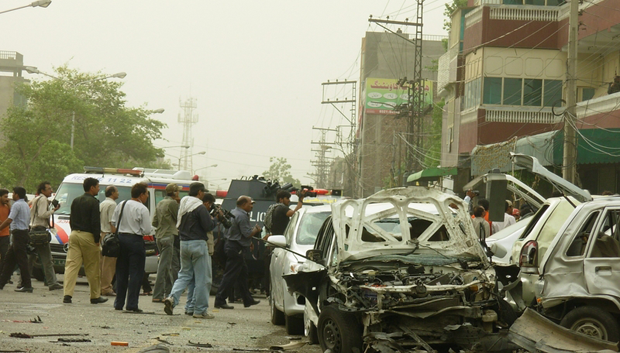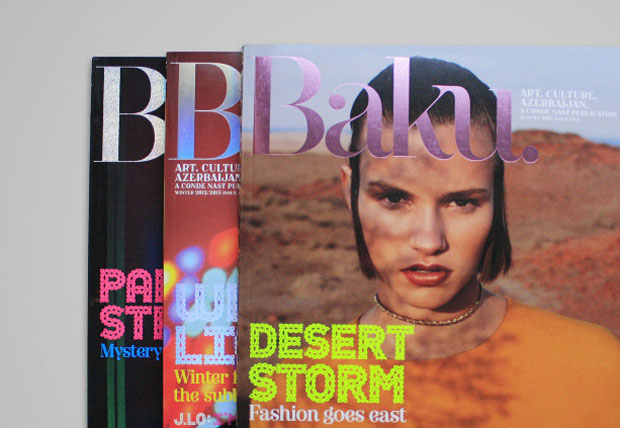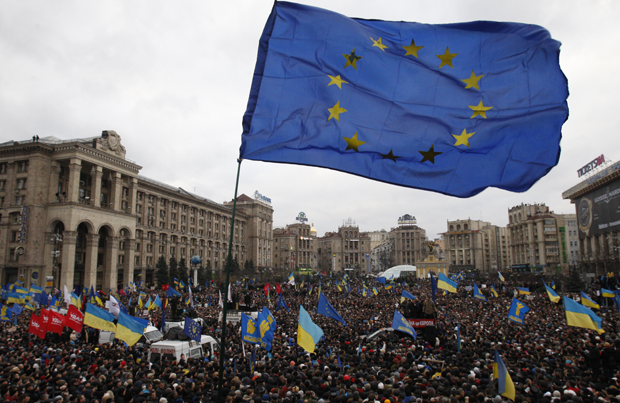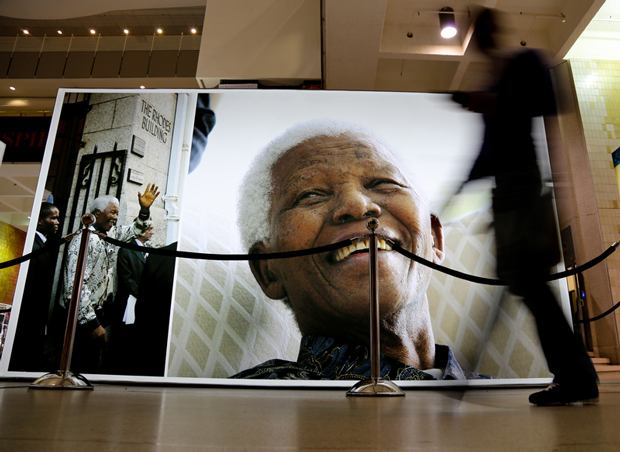Index relies entirely on the support of donors and readers to do its work.
Help us keep amplifying censored voices today.

In May 2010, terrorists attacked two mosques belonging to the Ahmadi community. Ninety-four people were killes and more than 120 were injured. (Photo: Aown Ali / Demotix)
“It was staged and pre-planned,” said Shahid Attaullah, referring to the arrest of a homeopath Dr Masood Ahmed on charges of blasphemy.
Narrating the details of the events preceding the arrest of a 72-year old doctor, who is also a British national, Attaullah, the spokesperson for the Ahmaddiya Jamaat, said: “Two men posing as patients, came to his clinic in the Anarkali, an older part of Lahore, on November 25. After a few minutes they started discussing religion. Supposedly the doctor responded to their questions about Islam and then they left. Within minutes, a mob gathered around the clinic. A complaint was lodged and the police arrested him for preaching. He is in lock-up and his bail denied.”
According to news reports, the doctor was arrested for ‘posing’ as a Muslim.
Ahmadis consider themselves Muslims but in 1974, the government promulgated an ordinance, declaring them non-Muslims. According to Pakistan’s constitution, this community cannot call themselves Muslims; are banned from referring to their places of worship as mosques and cannot recite the Kalima, which is the first tenet of Islam, whereby a Muslim proclaims that he is a Muslim. The Ahmadis are banned from even singing hymns in praise of Prophet Muhammad. Of late there have been incidents where they have been harassed for keeping Muslim names.
Attaullah sees this to be a long-drawn case now that a first information report (FIR) has been lodged. “It is now gone into the court.” Last year 20 trumped up charges were registered, while this year as many as 33 people have so far been booked including the doctor.
According to Attaullah while there are some judges who are themselves prejudiced towards the community, those who are not are pressured by religious hardliners.
“There was a case where the judge of the Lahore High Court refused to take decision and sent the application back to the lower court. This is quite unprecedented. Two months ago in another case, after the judge granted bail to the accused, a group of clerics went to the judge’s chamber. I don’t know what transpired inside, but a little later, the judge changed the written order stating ‘no bail’”.
This does not surprise Zohra Yusuf, the chairperson of the independent Human Rights Commission of Pakistan. “I can understand the judge’s predicament because a lot of power has been ceded to the clerics and most people buckle under their threats,” she said.
Since 1984, 299 people belonging to the community have been charged under the blasphemy law, 764 booked for displaying the Kalima; 38 for the Azan (calling to prayer); 447 ‘posing’ as Muslims; 93 for offering prayers, 770 for preaching and hundreds others for many such offences.
Little wonder then that Attaullah says: “There is always the sword of Damocles hanging over all of us and the mental anguish is permanent”.
“Many of our youngsters are migrating to other countries,” he said. “They do not see a future in Pakistan and the elderly members don’t want to leave the country they think is theirs,” he pointed out the social quandary they find themselves in.
The religious apartheid has become overt with the oppressors having declared an all out war. “In the last few years, I find the persecution has escalated and the attacks on us are pre-meditated and carried out in a planned manner,” said Attaullah. He further added: “And they always pick on the weaker elements of our community.”
In addition, said Yusuf: “The persecution of Ahmadis knows no bounds and, regrettably, there’s not enough condemnation from society or the media.”
According to Attaullah, the space for Ahmadis in Pakistan is getting narrower by the day.
Talking about the doctor’s arrest, he said: “The complainants had filmed the unsuspecting man reading aloud the translation of a verse from the Quran through the hidden camera.”
A Lahore-based journalist, requesting his name be withheld, (as he has received threats by an Islamic group for covering faith-based issues) has seen the video clip: “It was clear the doctor was trapped into saying what he said, but he was not preaching,” he said.
Further, said the journalist: “Ahmadis don’t talk about religion publicly and never to strangers; these people must be known to him and from the video it seemed they were asking him questions and he was responding to them.”
Attaullah, said they regularly circulate directives telling their people not to participate in any religious discussions with anyone and if the opposite sides wants to pull them in, they should simply disclose they are Ahmadis and the law does not allow them to speak on Islam.
This article was posted on 23 Dec 2013 at indexoncensorship.org
This article was updated to correct an error. Ahmadis were declared non-Muslims in 1974, not 1984 as previously stated.

Earlier editions of Baku magazine
The contrast is stark. On one hand, you’ve got Azadliq — Azerbaijan’s leading independent newspaper — balancing on the brink of bankruptcy. Known for its critical coverage of the country’s repressive regime, led by President Ilham Aliyev (in a role he essentially inherited from his father Heydar), the paper has been under continuous economic attacks by the government. Defamation cases and payments being held back, among others things, have left the paper in serious danger of folding.
On the other hand, there’s Baku — the art and culture magazine with an Azerbaijani twist, brainchild of Aliyev’s daughter Leyla and co-published by Conde Nast — which recently celebrated its second birthday. A magazine so expensively produced it has its own special font probably doesn’t need to concern itself too much with sales figures and turnover.
The birthday bash was held at “vibrant Baku night spot Pacifico”, where “the champagne flowed and the band played into the night” and guests “toasted the title’s success”. I know this because I recently got my hands on issue 10 of the magazine, which hit the newsstands last week. The party was heavily featured in the society section, which also included appearances by Leyla herself, her sister Arzu and mother and First Lady Mehriban.
Somewhat ironically, I found a stack at an Index event exhibiting the work of Azerbaijani photographers capturing some of the country’s many protests. They were probably kindly donated by the representatives from the Azerbaijani embassy, who popped along to the event.
At first glance, Baku magazine seems like your typical glossy, upmarket mag, promoting the sort of grossly decadent lifestyle most of us would never come within a gold cobbled country mile of. However, it doesn’t take many page turns to sense that something is a bit off.
One of the first things that hits you is the near-obsession between creating links between Azerbaijan and the most glamorous, posh and high-culture aspects of western countries. “Walking along the Boulevard, the wide, tree-lined esplanade that sweeps the length of Baku’s Caspian seafront, is probably quite similar to walking along the Promenade des Anglais in Nice, during the cooler months,” coos Leyla Aliyeva, who also holds the role of Editor-in-Chief, in her Editor’s letter. There is also the feature on the country’s new ski resort, Shahdag. “Sure, it’s not Les Trois Vallees”, the article says. But you can still tuck into Tskian, “the Azerbaijani equivalent of a French alpine tartiflette”. While it is far from the only country to indulge in a bit of self-promotion, the idea of selling Azerbaijan as a modern, glamorous it-spot, seems to permeate the whole publication to a slightly comical extent. But considering they have in the past hired western PR companies to help polish the country’s international image, I guess this is to be expected.
It is further reflected in the editorial staff, filled with Darrens, Marias, Carolines and Simons. For a magazine about Azerbaijan, it doesn’t seem to have many actual Azerbaijanis working for it. Granted, supply might be a bit sparse, as there are a number of journalists among the country’s (at least) 142 political prisoners. Perhaps potential employees are afraid of being blackmailed, like investigative journalist Khadija Ismayilova? Or brutally attacked, like reporter Idrak Abbasov? Or maybe it’s because most of Azerbaijan’s media is otherwise engaged in state-controlled media?
Anyway, it is not surprising that a magazine called Baku, whose USP is Azerbaijan, focuses on all things, well, Azerbaijan. Some tenuous links are drawn, like the article suggesting that jewellery designer to the stars Loree Rodkin’s new collection will be inspired by Azerbaijan, essentially based on nice things she said at an exhibition in Baku. The interview with musical prodigy Nazrin Rashidova, who was born in the country, is only really jarring if you know that musicians, like Jamal Ali, who have dared criticise President Aliyev have allegedly been tortured by the police.
However, there are sections that seem to leave all pretence at the door, and go full on into that strange subtle-yet-obvious mode of PR-managed propaganda. The eight-page ode to Baku’s controversial beautification and modernisation project, under the guise of an interview with designer behind much of it, is issue 10’s most striking example. In fawning terms, it discusses the type of urban renewal that saw houses demolished and families evicted in the lead-up to the Eurovision Song Contest, hosted in the capital in 2012. We also get previews of yet-to-be unveiled treats. The Port Baku development, opening this spring, “is set to become the city’s premier luxury address” with “flagship stores from the world’s leading fashion brands” and exclusive apartments with “access to a 3000sq m leisure club and spa”. There are also plans to transform “a former power station complex into three destination restaurants and a nightclub.” And it goes on and on. A separate article announces the opening of the Fairmont hotel in one of the city’s Flame Towers. The 36-floor hotel will boast “Baku’s first French Bistro”.
It’s a dedicated effort to shift international attention away from corruption, poverty and the continuing attacks on human rights. But while this attempt to paint Azerbaijan as a harmonious and modern hot-spot might work for some, juxtaposed against the actual goings-on in the country, Baku magazine also manages to highlight the vast gulf between the life the regime and its elite circles lead, and the struggle of those fighting for democracy. In some ways, it is a very tangible symbol of the two Azerbaijans.
To buy a copy of the autumn issue of Index on Censorship, featuring work by some of Azerbaijan’s most brave photojournalists, click here.
This article was published on 20 Dec, 2013 at indexoncensorship.org

(Photo: Anatolii Stepanov / Demotix)
The coverage of Ukrainian protests in the Russian media suggests a centralised anti-EU message and has provoked outrage in Kiev.
At first, Russian TV channels appeared to broadcast inaccuracies only on the numbers taking part in the demonstrations. Despite clear evidence on the ground that tens of thousands or even hundreds of thousands were taking part, Russian reporters described scenes as “a few hundred protesters.”
Russia’s state-run First Channel then chose to dramatise Ukraine’s alleged descent into anarchy with a montage depicting combat scenes from Yugoslavia in the early 1990s, accompanied by a morbid musical soundtrack.
Komsomolskaya Pravda, a popular Russian daily, led on Tuesday with “Ukraine may split into several parts” with an illustrative map to depict the predicted chaos. The next day, a headline read “Western Ukraine is preparing for civil war.”
Overall – the message from the state-controlled Russian media seems to have been – “Ukraine is suffering at the fate of dangerous opposition militants.”
Putin has lent his weight to the propaganda, describing unrest in Kiev as “more of a pogrom than a revolution” and calling protesters “well-prepared and trained militant groups.”
“Ukraine is like a liner going in a circle,” commented a high-profile Russian journalist this week. “The passengers are calmed by the fact that Europe is near, there is not far to go. In reality the economic collapse of the whole country lies ahead…Passengers will be hurt. Some will not survive.”
The journalist quoted is Dmitry Kiselyov, who Vladimir Putin recently named as head of a re-launched Russia Today — as part of the take-over of previous state broadcaster RIA Novosti.
The shutdown of RIA Novosti was seen as a further degradation in the impartiality of the Russian media — despite being state-owned it had offered some balanced reporting on Russian domestic and foreign policy.
Media analysts in Russia have commented that Kiseylov’s appointment to Russia Today, now the sole government news agency, may have derived from his loyal allegiance to Putin and his ability to propagandise in his favour.
In support of recent anti-homosexual legislation passed by the Russian government, Kiselyov had commented.
“Fining gays is not sufficient -– they should not be allowed to give blood, or sperm and in case of a car accident, their hearts should be burnt or buried as useless”
Kiselyov’s assessment on Maidan went further than his dubious ship analogy — suggesting on his weekly TV show that Sweden, Lithuania and Poland may be manipulating events behind the scenes as revenge for a battle the Russians won in the early 18th century, a battle that happened to be fought in present-day Ukraine.
“It looked like thirst for revenge for Poltava,” argued Kiseylov, citing the name of a battle that took place in 1709.
He then labelled Ukrainian opposition leader and boxer Vitali Klitschko, and his brother Vladimir, as “gay icons,” before describing the “ancient African military techniques,” which the protesters were apparently employing.
He also accused protesters of aggressively firing tear gas at police (when multiple Ukrainian and European media sources confirmed the opposite was correct), and said that opposition leaders had brought students to the protest as sacrificial lambs for the security forces. In fact, police had gone out and savagely beaten groups of students hours before.
Finally, he describes the “writers” of the revolution as a Ukrainian-American-European conspiracy, against Russia.
Skewed Russian coverage has not gone unnoticed in Ukraine. A journalist interrupted a live broadcast from Rossiya 24 – handing over a fake “Oscar” statue in recognition of the “lies and nonsense” that was being reported.
Before being pushed off frame, the Ukrainain Vitaly Sedyuk was able to blurt out “We love Russians but after the way you covered events….”
The Russian reporter ended his piece still holding the fake Oscar statue in his hand.
In contrast to relatively objective reporting in Ukraine, the reporting of Kiseylov and other Russians, combined with a media landscape which has now lost most of its independent voices, indicates the strongest move yet towards total state control of the Russian media.
This article was published on 20 Dec, 2013 at indexoncensorship.org

The City of Cape Town launched the Nelson Mandela Legacy Exhibition to honour his contribution to South Africa’s democracy. The exhibiton is a collection of historic photographs and visuals capturing significant moments in Mandela’s life. (Photo: Sumaya Hisham / Demotix)
Chinese coverage of Nelson Mandela’s death has reflected the government’s new-found sympathy for Maoism, its rejection of democracy and its long-standing sensitivities over Tibet and Taiwan.
When Nelson Mandela died, the official statement from President Xi Jinping praised Mandela as “an accomplished politician of global standing,” while state-owned China Central Television described him as “an old friend of China”.
This was to be a precursor for the following day’s censorship — which banned coverage referencing “freedom”,“democracy”, Mandela’s Nobel Peace Prize and foreign policy hot topics Tibet and Taiwan.
While President Xi Jinping did not attend Mandela’s funeral himself, his Vice President Li Yunchao did, and was booed by crowds as he made his memorial speech.
Xi commented on Mandela’s bright smile, called him a “towering figure” and “an old friend of China”. There was no mention of “freedom” or “democracy”.
In an op-ed for CNN, deputy director of Asia division for Human Rights Watch Phelim Kene argued that the deliberate omissions in official statements, as well as the selective censorship policy, was a ploy to distract attention away from China’s own Nobel Peace Prize-winning freedom and democracy activist, Liu Xiaobo.
In 2009, democracy activist Liu was charged with inciting subversion and sentenced to 11 years in prison. His name has since been banned from Chinese micro-blogging sites, although the state-owned Chinese newspaper Global Times broke the ban recently to issue a seething counter-West editorial, accusing American editors of falsely painting Liu as “China’s Mandela”.
According to The Global Times, outlets like The Washington Post, New York Times and CNN had deliberately focused on the imprisonment of Liu in an attempt to foster unrest.
An op-ed argued that “Mandela was awarded the Nobel Peace Prize for leading African people to anti-apartheid victory through struggle, tolerance and efforts to bridge differences,” while Liu had “confronted authorities” and “was dealt with under strict legal procedures. This system ensures that a society of 1.3 billion people runs smoothly.” The piece also argued that “mainstream Chinese society” had rejected Liu’s campaign for democracy.
Yet the circumstances of two men’s imprisonment remain remarkably similar. Mandela was charged and sentenced after he helped produce South Africa’s pro-democracy “Freedom Charter”. Liu, similarly, is one of the activists who drafted “Charter ‘08”, a manifesto for Chinese democracy. Families of both men were persecuted by the state and censorship departments in both countries attempted to remove all mention of the dissenters from the media (including previously written works).
Promotion of Mao’s legacy seems to be Xi Jinping’s communications strategy of choice — and it appears Mandela’s death has been co-opted into this “Maoisation” of Chinese politics. State press releases asserted that Mandela had read Mao’s “Little Red Book” while imprisoned on Robben Island, as well as describing himself as a “student of Mao”.
Mandela was certainly a fan of Mao, though principally for his military strategies rather than his later domestic policies. In a TIME Magazine interview, he praised the tactics used during the “Long March”, as well as his “determination and non-traditional thinking,” which Mandela briefly noted in his autobiography Long Walk to Freedom.
Overall, the Chinese press complied with censorship restrictions to censor the words “freedom” and “democracy” from accounts of Mandela’s life and death, as well as steering clear of Tibet and Taiwan, both contentious foreign policy issues that Mandela had previously weighed in on. Under his presidency, South Africa cut off ties with Taiwan over its previous support for Apartheid, and in favour of Communist mainland China.
Mandela had also met with the Dalai Lama on several occasions, who issued a video tribute to Mandela. The Tibetan leader has been refused a visa to visit South Africa twice in the last four years, regarded by many as an attempt not to risk diplomatic relations with China.
A dictat from China’s Foreign Ministry also attempted to censor “posts and comments on Weibo that take advantage of Mandela’s funeral to attack our political system and state leaders”, ordering offending content to be deleted immediately.
Property tycoon Ren Zhiqiang commented on Weibo: “Because he was a fighter — for all his life— for democracy, equality and peace and harmony, he is now an icon of all these.” Another user, from Shanxi, wrote “A great leader, rest in peace.”
Some Weibo users employed sarcasm to express their views. In response to philanthropist Fan Wei asking “Will China have its own Mandela?” one user replied, “Heroes only appear in turbulent times. In our ‘harmonious’ homeland, there is no use for Mandelas.” Another simply said, “They are in prison.”
“Old friend?” another user mocked. “He pursued justice, fairness and freedom. Does he have anything to do with you? Don’t blow your own trumpet.”
Notably, the so-called “New Left” Maoists reacted hotly to the government’s comparisons, with Weibo messages strongly in favour of Mao Zedong over Mandela.
“India’s Gandhi and South Africa’s Mandela were great. But Chairman Mao surpassed them all,” said one.
Another commented, “Mandela had bowed to racism. His consideration of the Tibetan independence movement as a human rights movement was a big, big mistake. He is a banana with dark skin.”
The death of Mandela has also resurrected an unlikely pop song from the 1990s. The Hong Kong-based band Beyond surged back into the charts with their song “Glorious Days”, reaching number one after almost a decade of hiatus.
“Glorious Days” had already achieved chart success in the post-Tiananmen era, when many were afraid to discuss political issues. Released in the midst of a music scene that mainly comprised of love songs, the Cantonese pop band achieved record sales with a song about racial equality, which was dedicated to Nelson Mandela.
This article was published on 19 Dec, 2013 at indexoncensorship.org